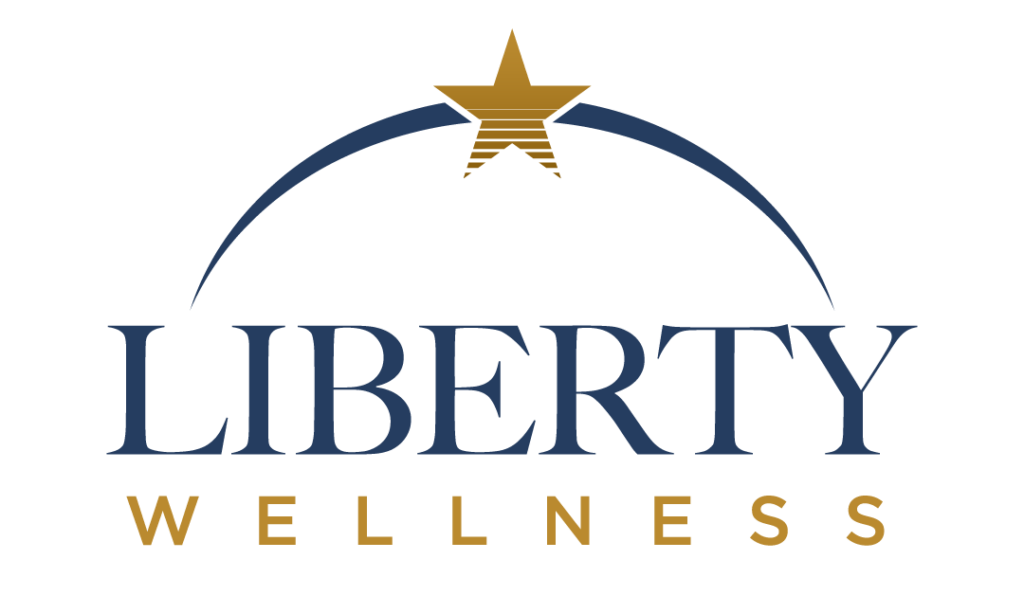ADHD Treatment
The Impact of ADHD/ADD on Mental Health
Many people have conflicting opinions on what ADHD and ADD are. Many feel it is simply kids being more active than usual or misbehaving. However, ADHD may be one of the most publically misunderstood mental health conditions today.
Liberty Wellness is a comprehensive treatment center offering dual diagnosis and ADHD treatment in New Jersey. Contact us today to learn how our treatment programs can help you or a loved one.


ADHD
Liberty Wellness of New Jersey Makes Your Journey To Recovery As Stress-Free As Possible.
What is ADHD?
ADHD is a mental health disorder characterized by a range of symptoms, such as difficulty concentrating or staying still for long periods, impulsivity, and hyperactivity. ADHD often first begins to show symptoms during childhood, with symptoms often persisting into adulthood. ADHD can be a challenging condition to live with, causing difficulties at school or work.
What Causes ADHD?
Although many attribute ADHD to poor parenting, high sugar intake, or too much time spent in front of TVs and games, ADD/ADHD is caused by genetic and environmental factors.
Types of ADHD
The DSM-5 recognizes three types of ADHD. These ADHD types are:
- Predominantly inattentive
- Predominantly hyperactive-impulsive
- Combined inattentive/ hyperactive-impulsive
Generally, ADHD is thought of as a childhood disorder; however, adults are also frequently impacted by it.
Most studies estimate that about 9.8% of children between the ages of three and 17 have ADHD; in adults, the amount is around 6.7 percent.
As with any mental health disorder, ADHD can considerably impact an individual’s mental health.
What Are the Symptoms of ADHD?
Common symptoms of ADHD/ADD include inattention, impulsivity, and hyperactivity. Other common symptoms may include the following:
- Difficulty concentrating on mentally challenging tasks
- Forgetfulness or disorganization
- Restlessness and difficulty sitting still for long periods
- Excessive talking or interrupting conversations
- Impulsivity
- Having daydreams that lead to careless mistakes
- Being easily distracted
- Impatience
Common psychological symptoms that may occur alongside ADHD include:
- Anxiety
- Depression
- Low self-esteem and self-confidence
- Social isolation or difficulty making friends
- Inability to manage stress
Adult Diagnosis of ADHD
Remember, symptoms of Adult ADHD/ADD can look markedly different from those seen by children. Often, ADHD manifests as time management, organization, and impulsivity troubles with adults. Adults with ADHD may also have trouble sustaining attention in conversations, completing tasks at work, or keeping up with bills and appointments.
Can ADHD Lead to Addiction?
The NCBI reports that individuals with ADHD abuse alcohol or drugs more than those without it. This is partly due to the impulsivity and difficulty focusing associated with the disorder, leading to potential substance abuse as a form of self-medication.
Studies suggest that dual diagnosis, the presence of both a mental health disorder and substance use disorder, is prevalent among those with ADHD.
According to the NIDA, approximately 50-70% of individuals have a co-occurring mental health condition alongside their ADHD.
Signs of a Co-Occurring Mental health Disorder
Individuals with dual diagnosis may display a range of symptoms, including:
Often, ODD is defined by disruptive conduct and acts of aggression, especially toward authority figures
Similarly, conduct disorder often suggests more troubling antisocial acts, such as stealing, fighting, vandalism, and abusing people or animals
Frequently, those with ADHD may show signs of a generalized anxiety disorder which causes them to be nervous and uneasy almost all the time, as well as physical symptoms such as a racing heart, increased perspiration, and vertigo
Rather than usual down feelings, depression is marked by persistent moods of sadness and despair, as well as a loss of interest in commonly loved activities
Although ADHD does doom a child to struggle in school, it often accompanies learning disorders such as dyslexia
Are There ADHD Addiction Treatment Centers in New Jersey?
When dual diagnosis treatment is needed, a New Jersey addiction and ADHD treatment program can provide the specialized care necessary. An integrated dual diagnosis ADHD treatment center in New Jersey combines evidence-based therapies specific to treating substance use disorders and mental health disorders like ADHD. This dual diagnosis / ADHD treatment approach helps individuals gain the skills and insight needed to manage both conditions long-term.
Treating dual diagnosis cases of ADHD can be complicated, as the dual diagnosis could exist independently, or one may be causing symptoms for the other. For this reason, an Addiction and ADHD treatment in New Jersey program must address both conditions simultaneously. Mental health treatment programs may include:
Psychiatrists may prescribe medications that can help with ADHD treatment and reduce ADHD symptoms as well as treat any underlying mental health conditions.
Support groups such as Alcoholics Anonymous and Narcotics Anonymous can help dual diagnosis patients find support and guidance in their recovery.
These treatments may include yoga, acupuncture, massage therapy, or other holistic approaches to dual diagnosis treatment focusing on mental and physical wellness.
This treatment uses cognitive restructuring and behavior modification to help individuals identify negative thought patterns and behaviors.
This behavioral health treatment focuses on developing interpersonal skills and emotional regulation, enabling patients to better manage their mental health conditions.
This rehab treatment encourages dual diagnosis patients to focus on values-based action and explore their motivations.
This therapy teaches dual diagnosis patients to recognize and accept their thoughts without judgment, helping them better manage negative emotions.
Life skills training programs focus on self-esteem, problem-solving, communication, and decision-making.
Family therapy is a form of group therapy that helps patients and their families learn to manage emotions better and solve conflicts healthily.
Relapse prevention programs at a recovery center focus on developing healthy behaviors and lifestyle changes that can help dual diagnosis patients avoid substances.
No matter what dual diagnosis treatment options are used, dual diagnosis treatment aims to help individuals with ADHD gain the insight and skills needed for long-term recovery. Recovering from a dual diagnosis of ADHD requires specialized dual diagnosis treatment that addresses both conditions simultaneously. With the proper dual diagnosis treatment, individuals can learn to manage their dual diagnosis and live healthier, happier lives.
Benefits of Treatment ADHD and Co-Occurring Disorder
Since ADHD can cause significant distress and interfere with functioning, dual diagnosis treatment can be beneficial in many ways.
Benefits of treatment of dual diagnosis ADHD may include:
- Improved concentration and focus
- Decreased impulsivity
- Improved emotional regulation
- Reduced risk of substance use disorder or relapse
- Increased ability to manage stress
- Enhanced communication skills
- Improved relationships with family and friends
- Increased self-esteem
- Better sleep habits
- Improved ability to manage daily tasks and activities
Liberty Wellness Offers Dual Diagnosis ADHD Treatment in New Jersey
When dealing with ADHD and a dual diagnosis, an addiction and ADHD treatment in New Jersey center is essential for long-term recovery.
Liberty Wellness is a drug and alcohol rehab center in New Jersey, offering comprehensive addiction treatment and mental health therapy.
Our team provides individualized dual diagnosis treatment plans tailored to each patient’s specific situation and goals.
We take a multi-point approach to dual diagnosis treatment, focusing on the underlying causes of dual diagnosis and treating both conditions simultaneously.
Our dual diagnosis treatment plans include addiction intervention services, individual counseling, group therapy, and more.
Reach out today for more information about dual diagnosis treatment for ADHD and co-occurring disorders in New Jersey!
We Accept Multiple Types of Insurance
Get help with payment for your Addiction rehab treatment. We accept multiple types of insurance and can help you verify if you will be accepted.








Reach out to us with any questions or to get started
Our Location:

-
20 East Taunton Road Suite 103
Berlin NJ 08009 - 866-937-3158

